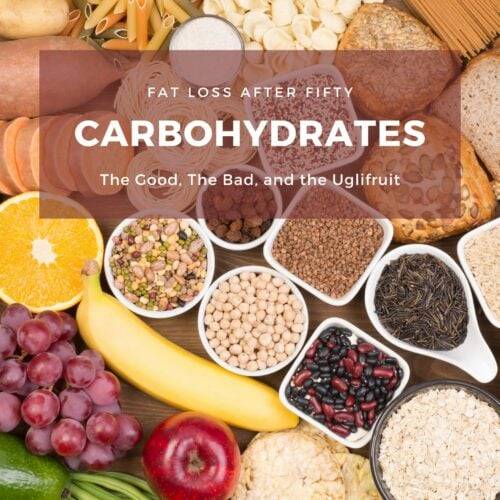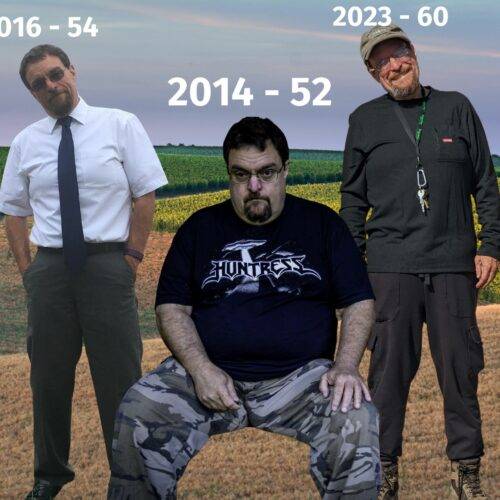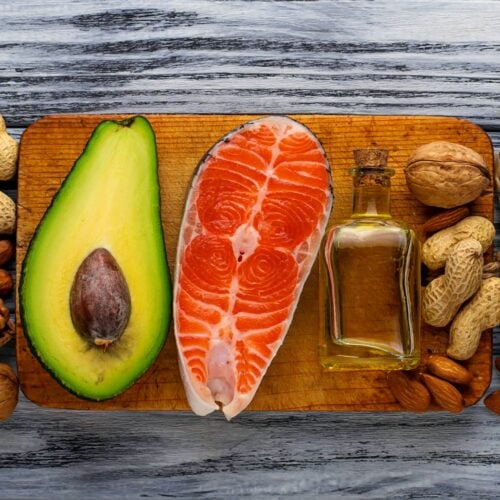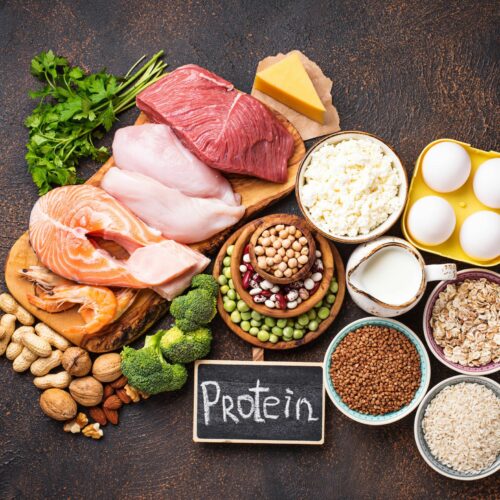The Importance of Balance
Fat Loss and Balancing Macros. What’s funny is that I can tell you how to lose fat. I can take you from here to where you want to be. I can’t tell you what balance means for you, that’s uniquely you.

Fat Loss is better with balance
The science of weight loss, or fat loss, which is specific to the excessive body fat is, and has been known for a long time. What has happened though is that science has been greatly refined with knowledge of all the things that impact the fat loss process. To lose weight all you need is a calorie deficit. This is true. Just incomplete.
Note the distinction between “lose weight” and “lose fat”. “Weight” can be a combo of three things: water, muscle and fat. Any old calorie deficit will help you lose weight. Eat 10 – 100-calorie cookie packs for a 1000-calories day for weeks on end and you will drop pounds like mad. Will you feel good? No. You will not. Will you spiral into an emotional dumpster fire from the stress of the 100-calorie cookie diet? Sure you will. Will you be right back where you started and beyond in no-time flat when the inevitable crash-binge event goes off? Sure you will.
Fat Loss? Now fat loss is specific. You don’t want to lose muscle mass, and you sure don’t want to dehydrate. So you need a plan to specifically drop fat pounds (Kg). That plan starts with the macro balance right for you with a consistently maintained calorie deficit that keeps you energized and healthy. So lets learn.
Disclaimer note: If you under provider care for a heart condition, metabolic disorder such as type 2 diabetes, a digestive disorder or any other food-sensitive malady someone with the appropriate education and certifications should be driving your eating style. Be safe out there and do what is best for you.
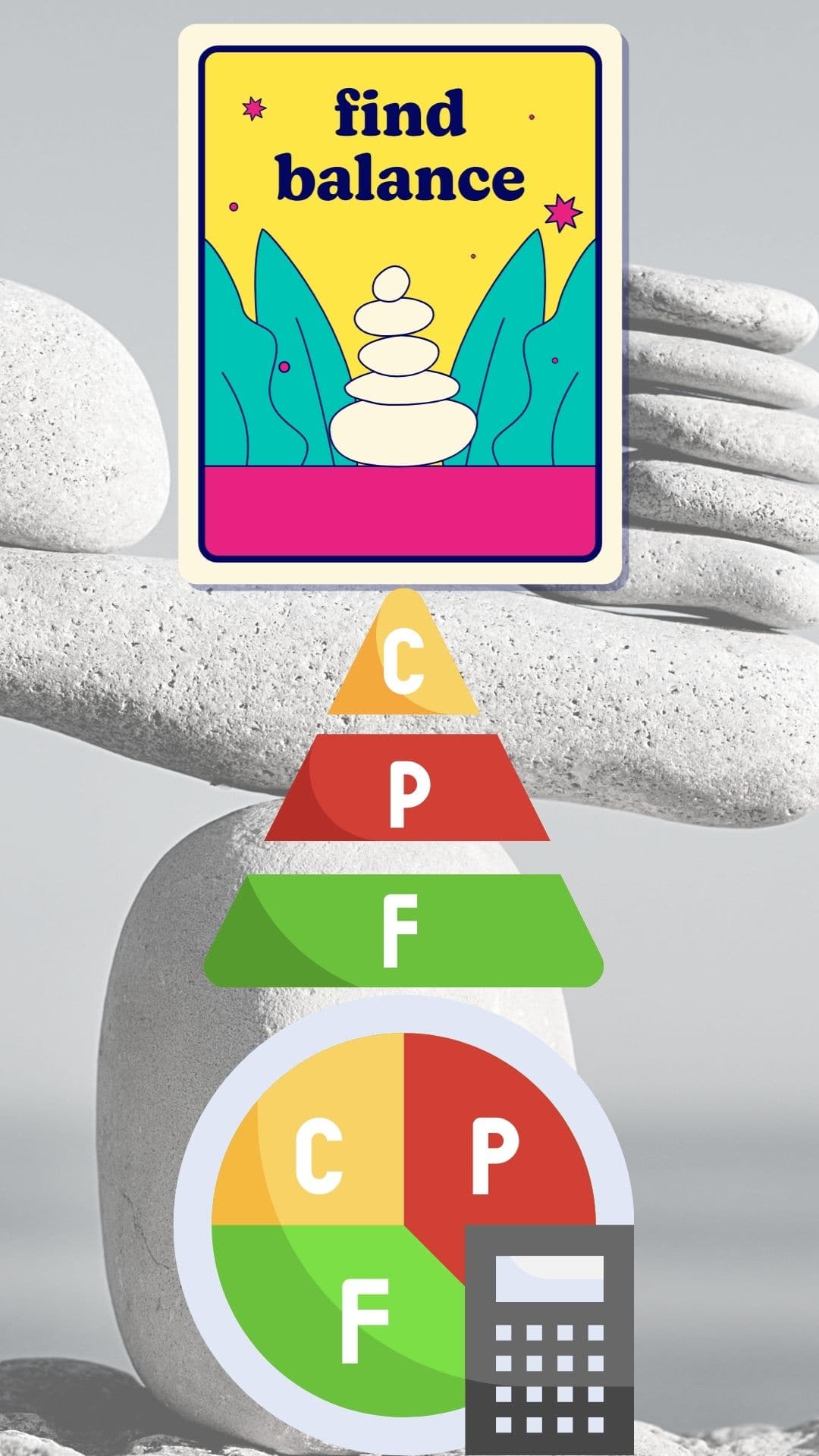
When it comes to losing fat, there are many different dietary approaches. Regardless of chosen eating style, one of the most important things to consider is balancing your macros. Macronutrients, or macros for short, refer to the three main categories of nutrients that make up our diets: proteins, carbohydrates, and fats. While each macro plays a unique role in our bodies, the balance of macros we consume can have a big impact on our ability to lose fat effectively.
The first thing to consider when trying to lose fat is the importance of a calorie deficit. This means consuming fewer calories than you burn throughout the day, which forces your body to use stored fat for energy. However, simply cutting calories isn’t enough to ensure successful fat loss. You also need to make sure you’re getting the right balance of macros to support not only weight management goals, but also your physical and emotional health while on the journey.
Three Macros and a Things to think about
Proteins
Hands down Protein is perhaps the most important macro to focus on during fat loss, as it helps to preserve muscle mass while your body burns fat for fuel. When you’re in a calorie deficit, your body may turn to muscle tissue for energy. Consuming enough protein will help prevent this from happening. Aim for .75 to 1 gram of protein per pound (1.6 to 2.2 grams per kilogram) of body weight per day. Do pay attention to this macro. Also note that over-eating proteins doesn’t help you. So go ahead, have that protein shake. Having four though won’t do anything but wreck your balance.
Carbohydrates and Fats
Carbohydrates and fats are important for providing energy and supporting overall health, but the ratio of these macros will vary depending on your individual needs and food preferences. Some people find that a higher-carb, lower-fat diet works well for them, while others prefer a higher-fat, lower-carb approach. Ultimately, the key is to experiment and find the balance of macros that helps you feel your best while still achieving a calorie deficit.
When it comes to balancing macros, consider the quality of the foods you’re eating. Focus on whole, nutrient-dense foods like lean proteins, fruits and vegetables, and healthy fats. These foods will not only help you achieve a better macro balance, but also provide your body with the nutrients it needs to function optimally.
You also want to understand that the nutritional quality of these macros will depend upon their sourcing: a gram of pork fat is not nutritionally equivalent to a gram of salmon fat. A gram of Snickers bar carbs is not equivalent to a gram of apple carbs. How you source these carbs is the thing you have to consider in depth.
At The End Of The Day
Balancing macros is a crucial part of losing fat in a sustainable, effective and healthy fashion. By focusing on getting enough protein and finding the right balance of carbohydrates and fats, you can support your body’s fat-burning processes while still feeling energized and satisfied. This is the way to sustainably achieving and maintaining you goal self, which should really be your target: your best you within a healthy weight range. And to beat a dead horse, a calorie deficit is necessary to achieve fat loss, so make sure you’re keeping track of your overall calorie intake as well. Its a pain, yes it is. But all life is learning and effort and all successes are the result of developed and tuned routines. Do the work and you’ll get there.
Make sure you subscribe to my Health Tips Update below as this is just one of a series! I’ll never use your email to market to you or sell it to others to use in their possibly nefarious designs. Haven’t we all just had enough of that?
Love and Blessings!
A tool to help you balance
A decent tool that can help you do this is Cronometer. A tracking app for monitoring calories and balancing macros. The free version for individuals should be great for most fat loss efforts. This isn’t sponsored. Its just the tool I use and it works well and easy for me, though I use the Pro version for advanced data because I just have to nerd out on this stuff. You don’t have to nerd.
Protein and Fat Loss
Related Articles
